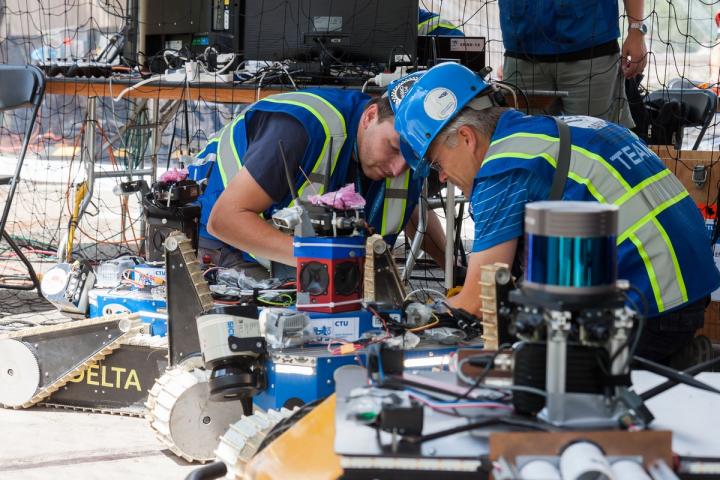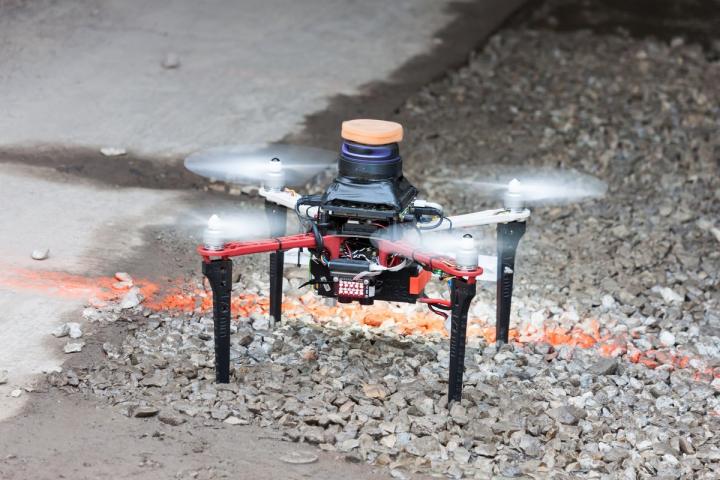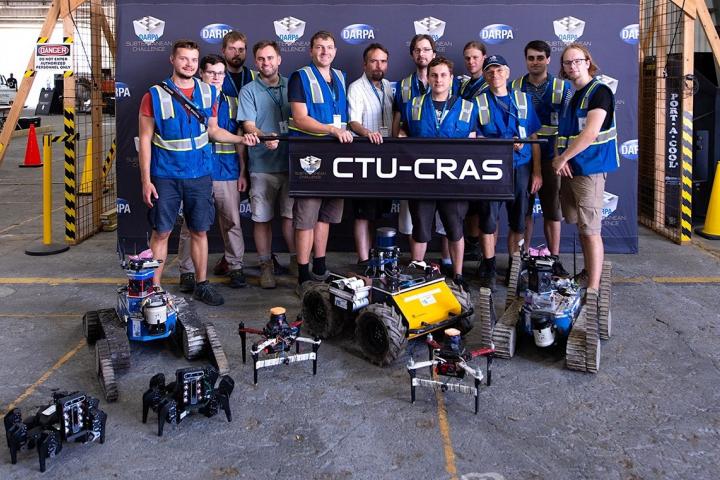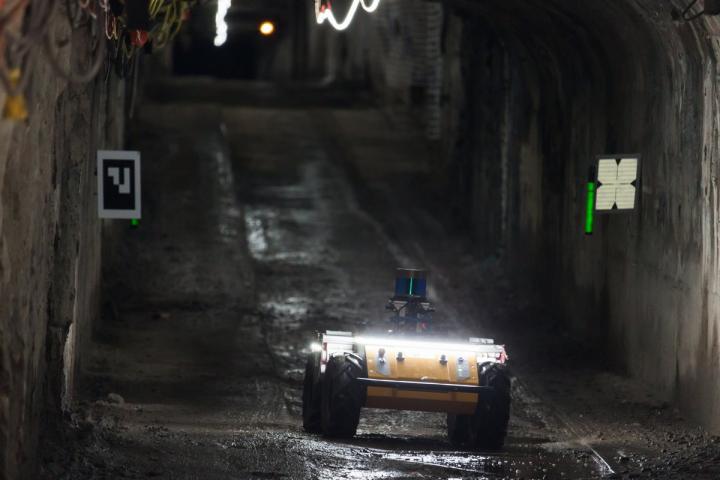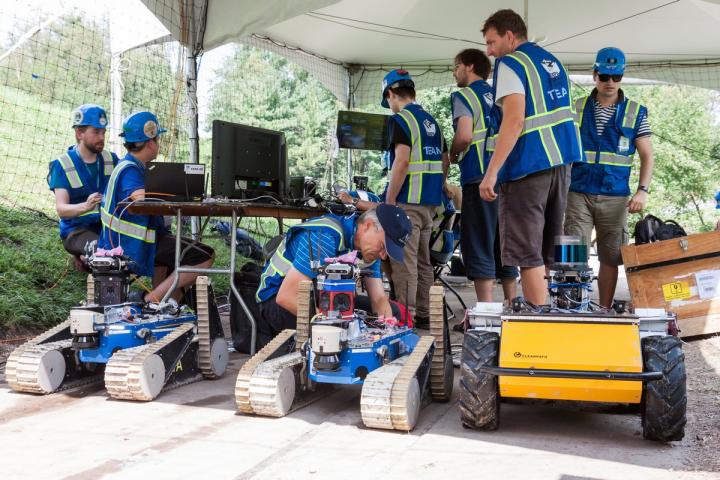
A team of CTU-CRAS scientists and students from the Department of Cybernetics and the Computer Department of the Faculty of Electrical Engineering is developing a multi-robotic system for operations in a previously unknown environment, for example in a disaster area. Thanks to the Defense Advanced Research Projects Agency (DARPA) competition, systems of autonomous collaborating robots can be tested, which, without human assistance, are able to explore underground spaces in conditions faithfully mimicking real action. For better 3D environmental maps, researchers have intensified collaboration with the NORLAB robotic lab from Laval University in Quebec. Colleagues from Canada have already worked with the team before, but this time they will join us personally at the competition site.
Both ground and flying robots of various types and sizes will be deployed in the competition. The robots are equipped with advanced sensory technology including omnidirectional cameras, stereo cameras, or lidars. The aim is to develop a system for efficient cooperation of robots with different abilities. Robots will map unknown environments and search for objects, all in a GPS-free environment with very limited communication. The greatest possible autonomy is desirable, so all the necessary calculations are done directly by the robots.
More information on CTU-CRAS participation in the DARPA competition is available on the team´s website.
Contact person: Libuše Petržílková
